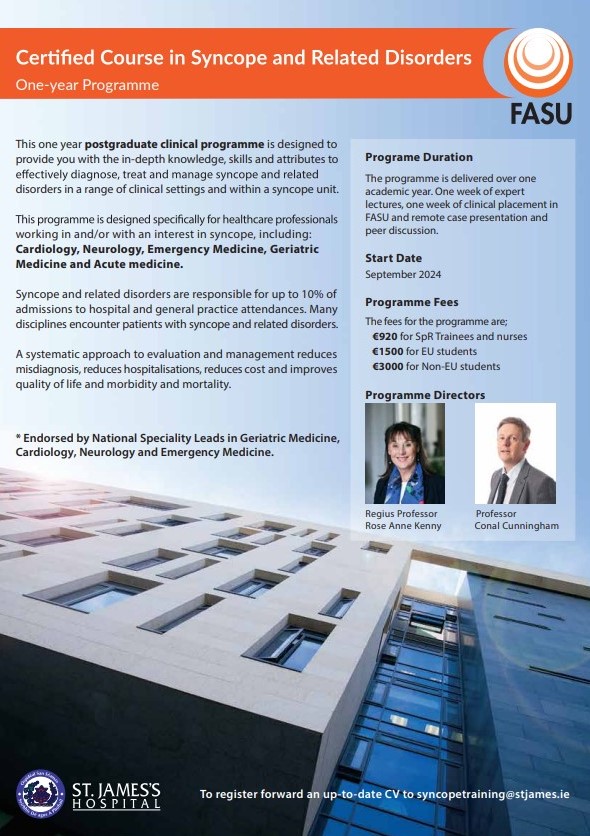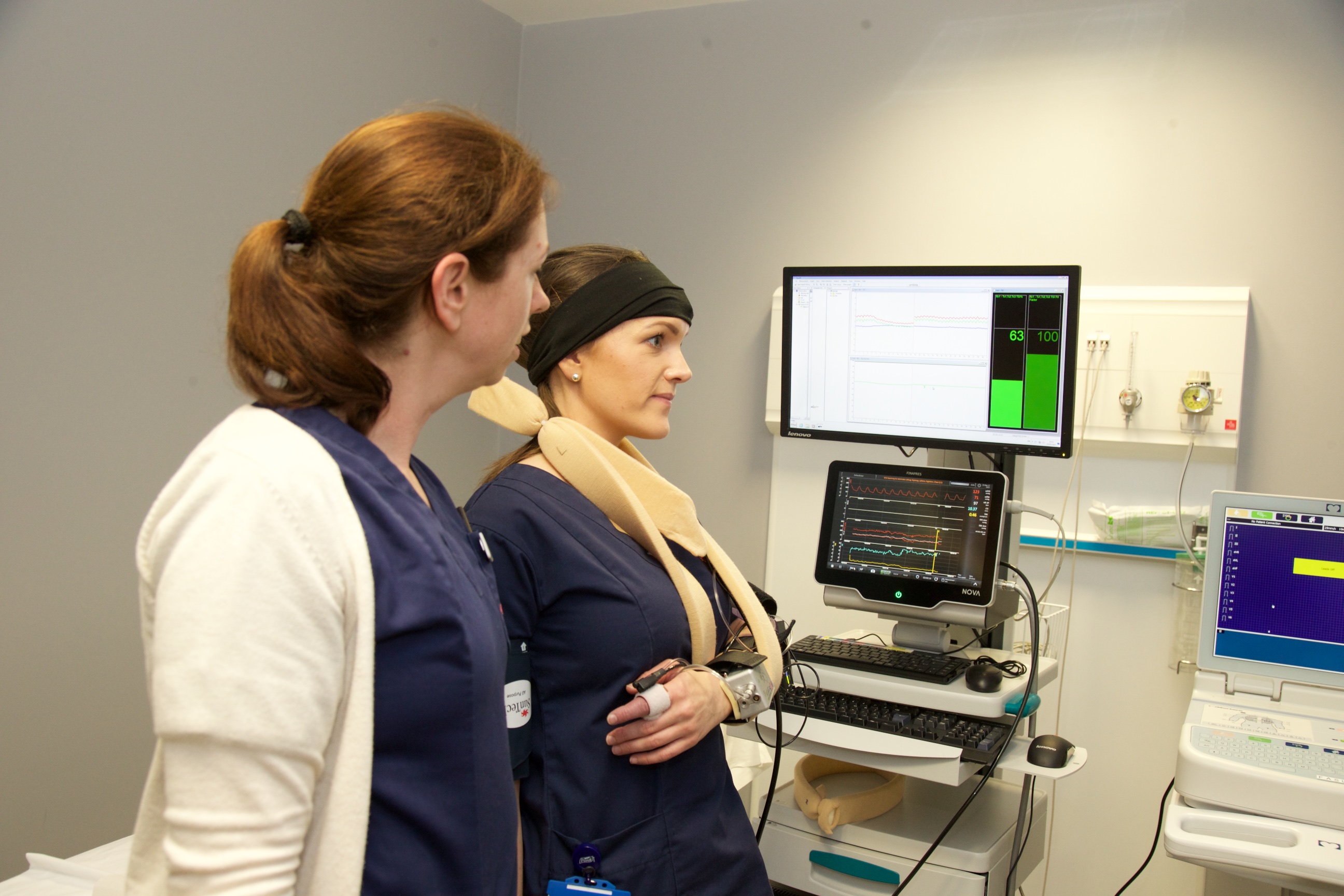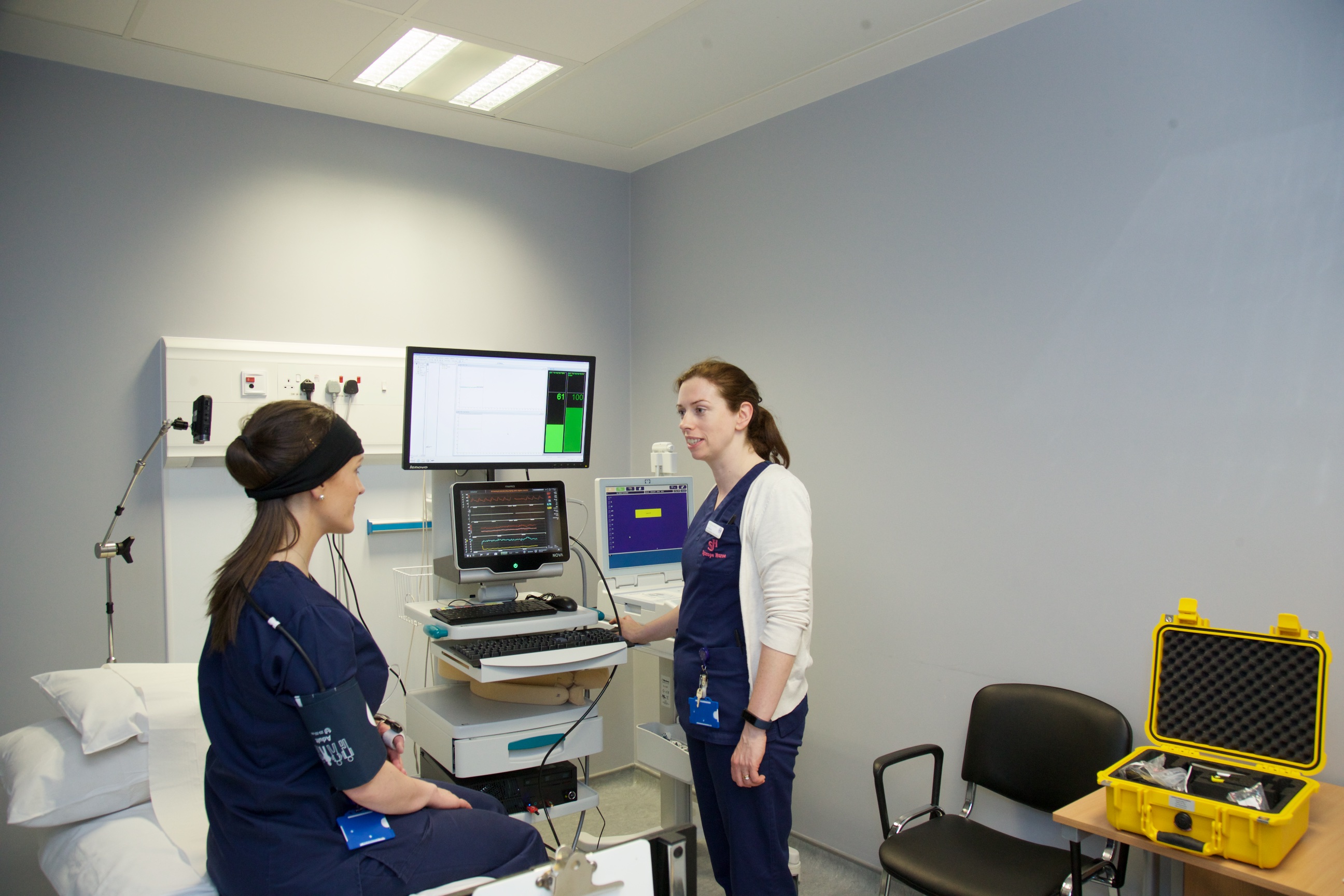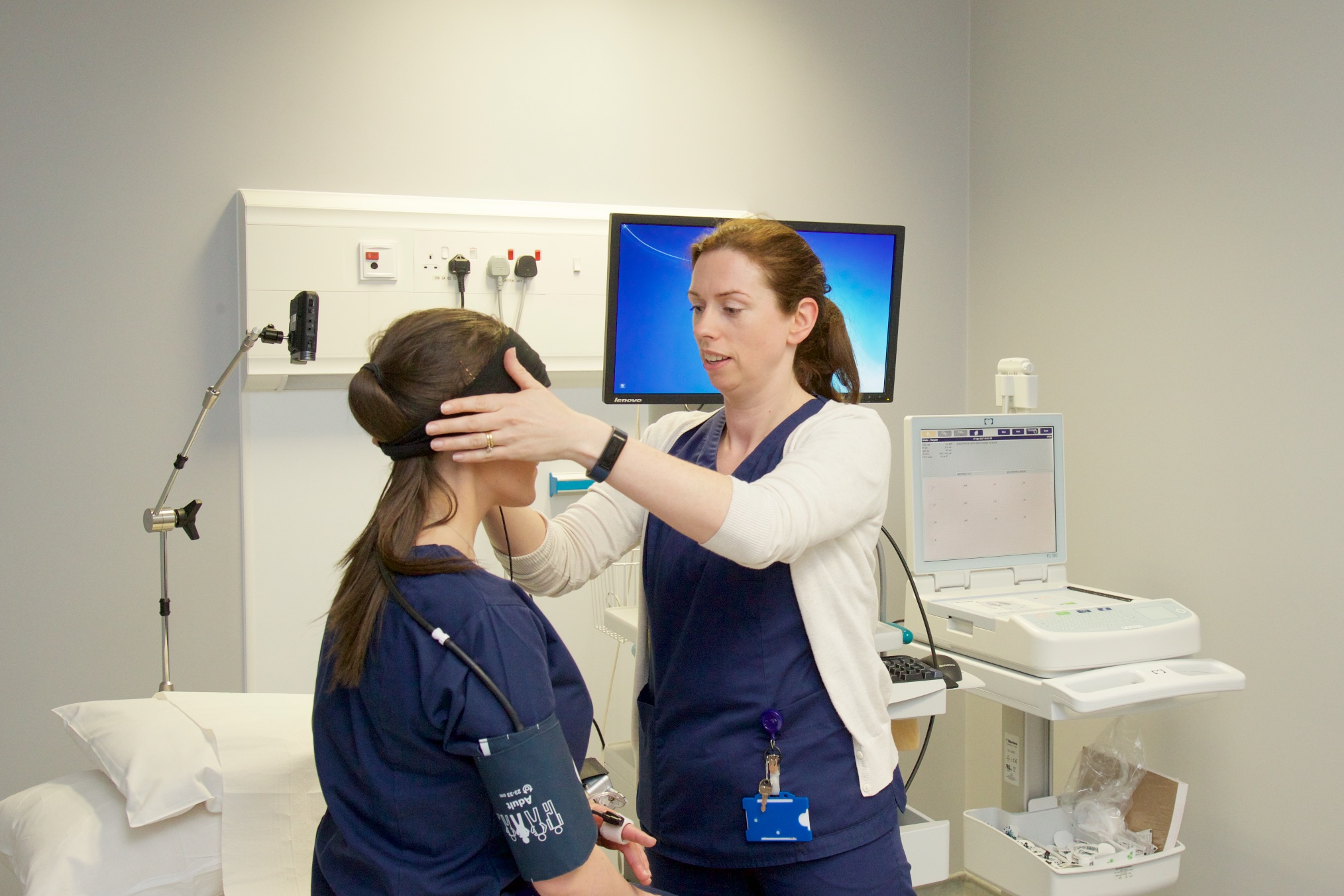Each patient who attends the Falls and Syncope Unit (FASU) will have a number of investigations carried out in order to identify the cause of symptoms. These investigations will be tailored to the individual based on symptoms and an assessment by clinicians. This may include the following tests:
Active Stand Test: For this test, the patient is supine (lying down) for 5-10 minutes while a Finometer® is applied to one arm. The patient is then assisted to a standing position and changes in blood pressure are recorded for 3 minutes.
Autonomic Function Tests: The autonomic nervous system regulates blood pressure, heart rate, breathing, stomach and intestinal function, and bladder function. Autonomic testing lasts approximately 1-2 hours and includes an active stand test, breathing tests and responses to temperature changes. Patients are advised to avoid eating for a minimum of 3 hours before the tests and to avoid caffeinated beverages and nicotine for 6 hours prior to testing.
Blood Pressure Monitoring: Blood pressure monitoring provides clinicians with the pattern of a patient’s blood pressure for a full 24-hour period. A cuff around the arm will activate every half-hour during the day and night to record readings.
Carotid Sinus Massage: This test is done using a Finometer® while the patient is in both lying down and upright positions. For this reason, the test is carried out on a bed that can tilt upright with straps applied across the legs and abdomen for added security. Electrodes are applied to the chest to monitor heart rhythm and a cuff measures blood pressure during the test.
Electrocardiogram (ECG): This test measures the electrical activity of the heart and involves the application of ten electrodes (stickers) to the front of the chest. Loose clothing is, therefore, advised for the day of testing.
Event Monitor: The 7-Day Cardiac Event monitor is used to detect abnormal heart rhythms related to blackouts, loss of consciousness or dizziness. A small device records the heart’s electrical activity and identifies arrhythmias.
Hall Pike Test: This test is used to identify symptoms of dizziness related to vertigo. The patient sits upright on a bed with pillows behind the back and then is assisted into a lying position, with the head turned to the right or to the left. A positive test can activate a patient’s symptoms of vertigo.
Implantable Loop Recorder: An Implantable Loop Recorder (IRL) is a small, thin device that is inserted under the skin to record the electrical activity of the heart. It can be used to identify the cause of blackouts when other tests have been inconclusive or when symptoms are too infrequent to be detected by other monitoring systems.
Tilt Testing: While attached to a Finometer® and an ECG machine, a patient lies in a bed which is tilted to a supported standing position (70˚ angle). Soft straps are applied across the abdomen and knees to keep the patient in place. There are two types of tilt tests: a head-up tilt which takes approximately thirty-five minutes and another which lasts twenty minutes.
Urine Testing: Urine is collected for 24-hours and measured for both volume and sodium content. Patients are provided with a receptacle and instructions for collecting urine.




